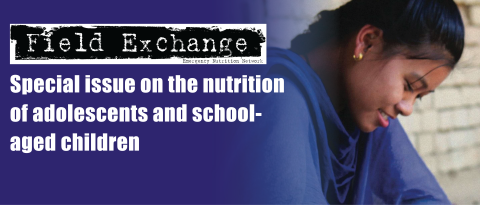Scoping review on school food and nutrition policies
World Health Organization (2021). Assessing the existing evidence base on school food and nutrition policies: a scoping review. Geneva. WHO. License: CC VY-NC-SA 3.0 IGO.
The prevalence of overweight, obesity and diet-related noncommunicable diseases among children and adolescents is rising globally. Furthermore, the prevalence of wasting and stunting rates remains high in many low-income settings. The school setting provides an environment in which the health of children and that of the wider school community can be protected and promoted, making school food and nutrition policies a critical area when tackling malnutrition. However, there has been a notable weakening in school health and nutrition programming over the past decade. In response, the World Health Organization (WHO) is currently developing school food and nutrition policy guidelines.
This report presents the results of a scoping review conducted in 2019 to support the development of the WHO guidelines on school food and nutrition policies. The review identifies and maps existing evidence on the effects of school food and nutrition policies on health-related outcomes in children of school age. Policies and interventions were mapped in terms of their impacts on the following policy areas: school community, the school curriculum, the school food and nutrition environment and school nutrition and health services. The report does not discuss the effectiveness of the different policies and programmes.
A total of 69 reviews (67 systematic reviews and two protocols) were included in this scoping review. Of these, 66 assessed the effects of school-based policies or interventions and three assessed the factors influencing the implementation of interventions. In total, five systematic reviews specifically assessed food and nutrition policies. Of the 66 effectiveness reviews, the majority reported on primary and secondary school-aged children (n=20/66) or pre-school, primary and secondary school-aged children (n=17/66). Many primary studies included multi-component interventions, for example interventions that addressed the school curriculum and community. Overall, reviews that assessed the impact of policies or interventions on the school curriculum were most common (n=48/66) followed by reviews that assessed the impact of policies or interventions on the school food and nutrition environment (n=39/66), the school community (n=22/66) and school nutrition and health services (n=10/66). Interventions included many different activities including nutrition education, gardening, food procurement policies and the provision of food in schools. Nutrition policy options, including food and nutrient standards and pricing policies, were the subject of only a handful of reviews. Questions related to obesity and overweight dominated the evidence base; there were no reviews that assessed underweight, stunting or wasting. The most reported outcomes were anthropometric and diet-related.
The scoping review also identified key gaps in the existing evidence base. Going forward, there is a need for longer-term follow-up studies, more studies in lower-income countries, greater inclusion of theoretical models to support the implementation of interventions, more studies that make comparisons between interventions with and without parental participation as well as across socio-economic divides, the extension of outcomes of interest beyond the physical outcomes - to include cognitive and academic outcomes as well as environmental determinants - and more studies that assess the cost-effectiveness and sustainability of the interventions. Based on the findings of this scoping review, the WHO has commissioned a new systematic review to underpin its upcoming recommendations on school food and nutrition policies.


